20+ SAMPLE Property Management
-
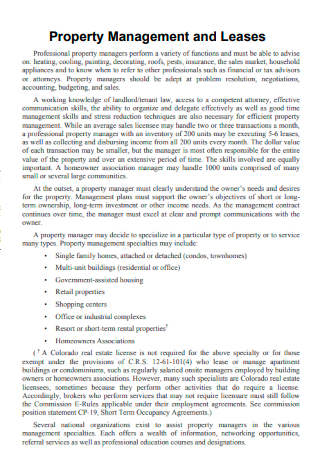
Property Management and Lease
download now -
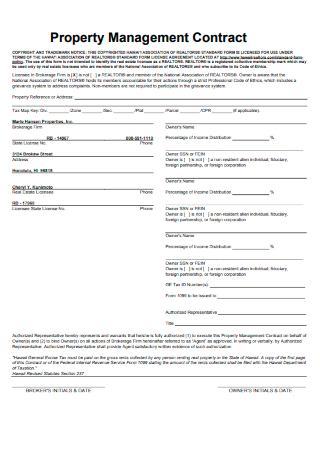
Property Management Contract
download now -
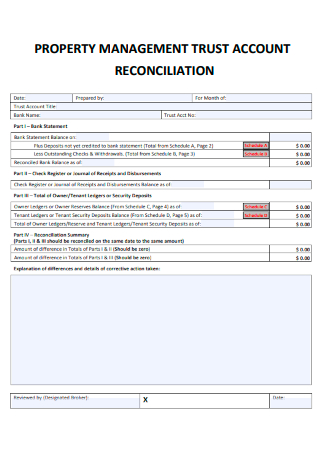
Property Management Trust Account Recounciliation
download now -
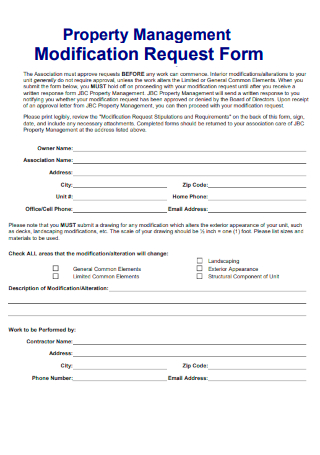
Property Management Modification Request Form
download now -
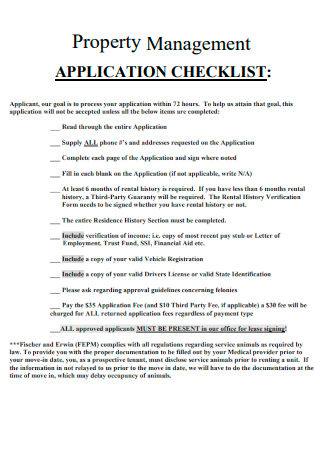
Property Management Application Checklist
download now -
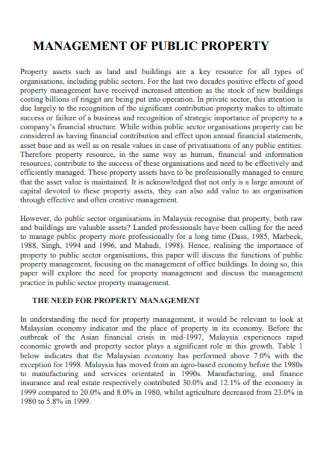
Management of Public Property
download now -
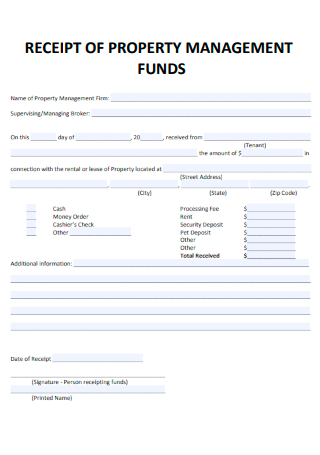
Receipt of Property Management Funds
download now -
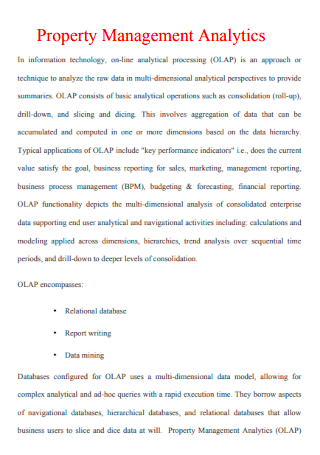
Property Management Analytics
download now -
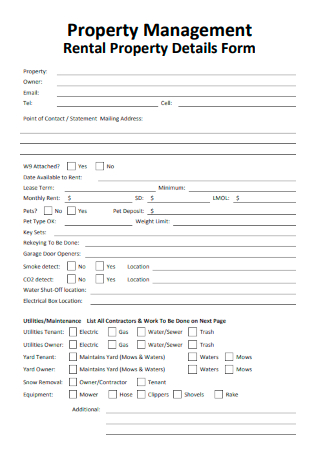
Property Management Rental Property Details Form
download now -
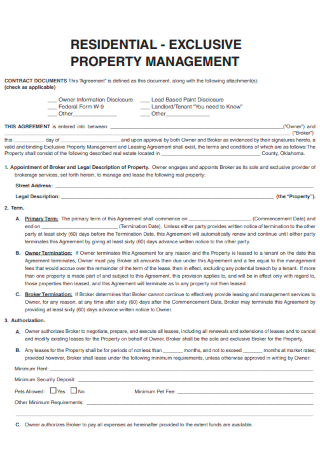
Residential Exclusive Property Management
download now -
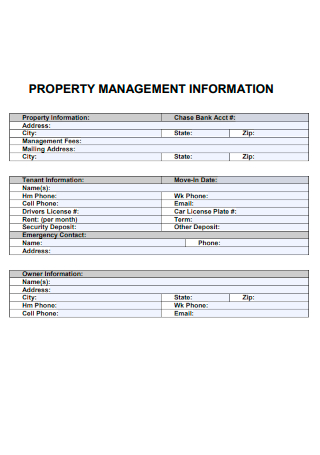
Property Management Information
download now -
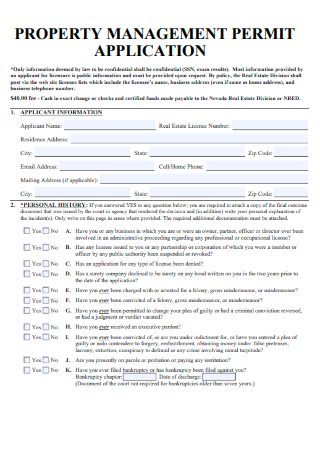
Property Management Permit Application
download now -
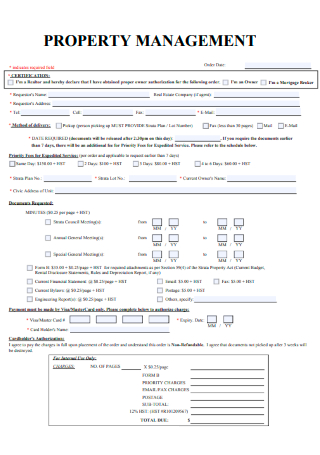
Formal Property Management
download now -
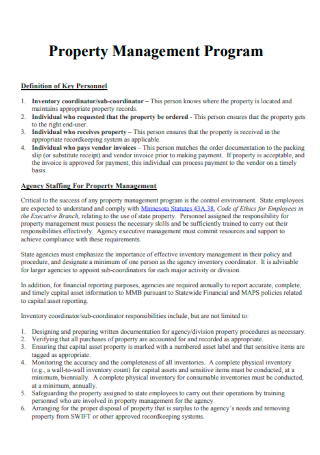
Property Management Program
download now -
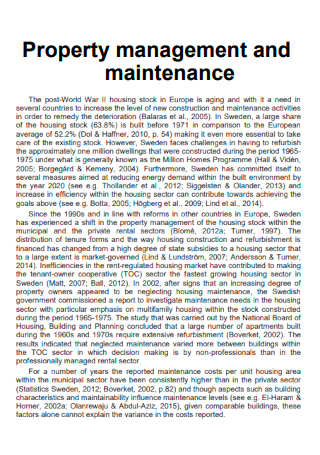
Property Management and Maintenance
download now -
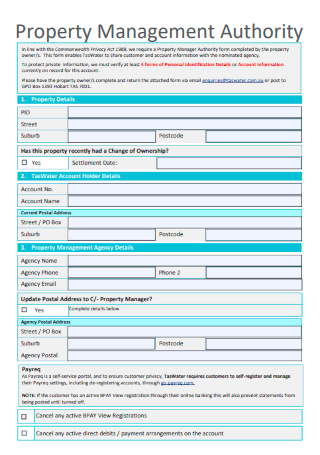
Property Management Authority
download now -
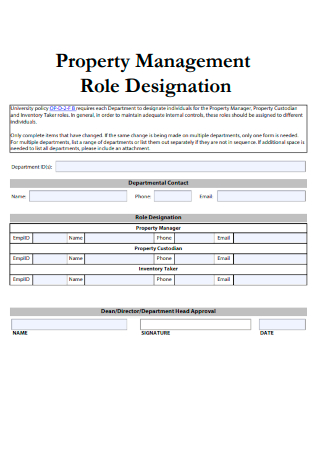
Property Management Role Designation
download now -
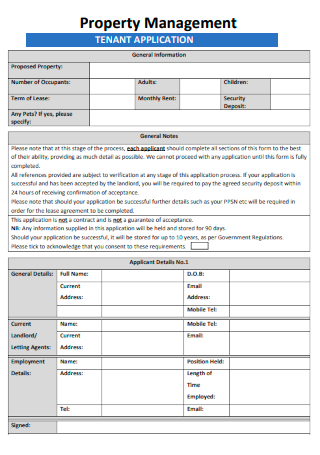
Property Management Tenant Application
download now -
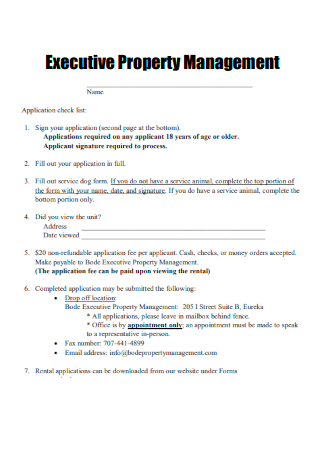
Executive Property Management
download now -
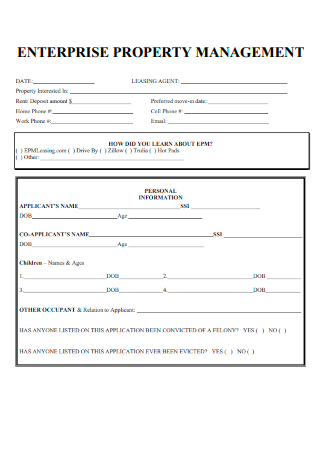
Enterprise Property Management
download now -
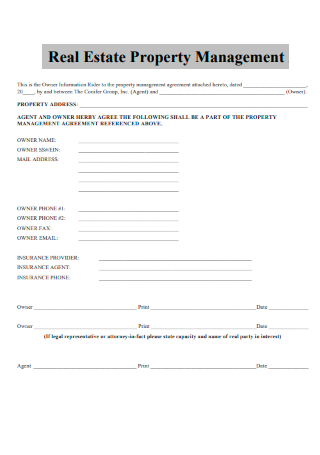
Real Estate Property Management
download now
What Is Property Management?
Investopedia defines property management is defined as a third-party contractor’s daily control of the residential, commercial, or industrial real estate. Property managers are often in charge of day-to-day repairs as well as continuous maintenance, security, and upkeep of buildings. They are typically employed by the owners of investment assets such as apartment and condominium complexes, private home communities, commercial malls, and industrial parks. Their primary responsibilities include managing regular activities given to them by the owners as well as preserving the value of the premises they manage while producing cash. With the property management description given, you can comprehend it more.
Property Management Responsibilities
The amount of obligations assigned to a property manager is determined by the terms of the contract between them and the landlord. Some landlords may merely want a property manager to collect Rent, but others may want a property manager to handle all aspects of their property. The following is a list of property management duties that you can take into consideration. Being aware of the property management responsibilities will help you to have better management regarding investments.
Types of Property Management
The property manager also ensures that the property and its owner comply with all applicable rules and regulations. This is especially significant if the property is part of a housing assistance program. Property management is classified into four types: residential, commercial, industrial, and special purpose. Being aware of the various types of properties to be managed will help you to handle property management services. As written in the curated list above regarding property management duties and responsibilities, you will be more aware of how to manage each property.
How to Write a Property Management
Now, this is the part of the Article where you will be utilizing the guide prepared so you can create a document on property management. Property management companies may not have a strict structure or basis on what needs to be contained within them. If your company does have one, then be sure to request it from the supervisor. Otherwise, if they don’t, then you can use the templates available. Not only will you ensure relevant information is not missed out but you can speed up the process such as the property management fees.
1. Evaluating Properties
A property valuation is an assessment of the worth of your property based on its location, condition, and a variety of other variables. A professional surveyor will conduct your value in person, taking notes and pictures and sending you a valuation report. When completing a property appraisal, five basic strategies are used: comparison, profitability, residual, contractors, and Investment. When determining the market or rental worth of a property, a property valuer can employ one or more of these approaches.
2. Marketing Properties
When it comes to large purchases, today’s customers prefer to do their research online, and this includes house buying. You may have tried searching for the address on Google Maps, using Street View to get a sense of the neighborhood, seeing which shops are within walking distance, looking at home images, and, ideally, taking a virtual tour of the property. With thorough descriptions, beautiful photographs, virtual tours, and easy access to Google Maps and Google Earth, your property pages and listings should make it simple for consumers to get all of this information.
3. Screening Tenants
The screening procedure is intended to assess risk. And the risk-mitigation variables are identical to those used by your lender to qualify you for a mortgage. While you may ultimately set your restrictions, the majority will advise you to set non-negotiable minimum conditions before speaking with prospective renters to preserve your Financial health. Setting certain criteria might help you avoid difficulties like as late or missing payments, neighbor complaints, criminal activity, or eviction. When determining whether or not a renter fulfills your requirements, look for the following signals. These are also red flags that warn of the possibility of future issues.
4. Manner or Dates of Collecting Rent
As for this section, you will need to clarify for readers or other parties who will receive this document how rent collection will go about. As there are various means to do so, renters or tenants may want to be aware before proceeding with the contract of settling in your specific property. In a poster, you can add logos or icons of the offered method of payment and a statement on when you will be asking for it, such as the first Friday of the month.
5. Regular Inspections
Your property manager should do five distinct types of inspections on your property. Each Inspection is intended to uncover current problems and, more significantly, to assist prevent minor problems from becoming large and costly. After the renter signs the lease but before they move their possessions into the property, a move-in inspection is done in person with them. In addition, there are quarterly inspections, drive-by inspections, move-out inspections, and ownership changes. When you change management firms, you should do a rental property inspection comparable to when you first acquired the property.
6. Repair and Maintenance
Through a variety of proactive and reactive maintenance duties, property maintenance keeps a property in optimal condition in terms of both function and comfort. Property maintenance includes tasks such as exterior upkeep, pest control, common area maintenance, garbage and recycling, interior Maintenance, and safety inspections. When you engage a property management firm, property upkeep is usually included in the deal. You could do the upkeep yourself, but depending on the size of the property and the extent of the work, it may be worth it to hire a professional property manager.
FAQs
How often should a landlord do an inspection?
Within the regular range, your rental property should be inspected one to three times each year. However, you are allowed to do so even quarterly as long as you follow the appropriate tenancy regulations. No property is impervious to upkeep difficulties. The industry normally considers performing periodic inspections at three, four, or six-monthly intervals to account for seasonal and weather fluctuations, which can occasionally create or uncover problems. A periodic inspection will allow you to properly verify and document the condition of the property. Refer to the last property management section regarding repair and maintenance.
What Is the Importance of property maintenance?
Regular property care protects your property from major damages caused by irregular maintenance or cleaning methods. If minor repairs are disregarded, they can grow pricey over time. Neighborly tips stated that regular, proactive house care can not only help you keep your home’s present worth, but it can also raise the value of a home by around 1% every year. You would want to increase the value chain as opposed to decreasing it because it will impact how renters, tenants, or potential buyers see your property.
What distinguishes a landlord from a property manager?
A landlord and a property manager are both people who manage properties. A landlord is someone who owns rental property. Property managers are those who handle the business of several landlords rather than just one. Property management businesses advise their customers on matters such as rent collecting, repairs and upkeep, and other concerns that may develop in a rental property. Landlords and property managers both work with clients, but to varying degrees. A landlord is an owner who hires a manager to oversee his or her property daily. Property managers represent many owners while collaborating closely with renters in each specific block.
As you read through the article, you would have absorbed the information written out. Along with the guide, examples, and templates prepared above, you would have all the materials you need to write your ideal property management. Without further ado, you can start right away or utilize the templates so you can jump right away to edit the contents.
